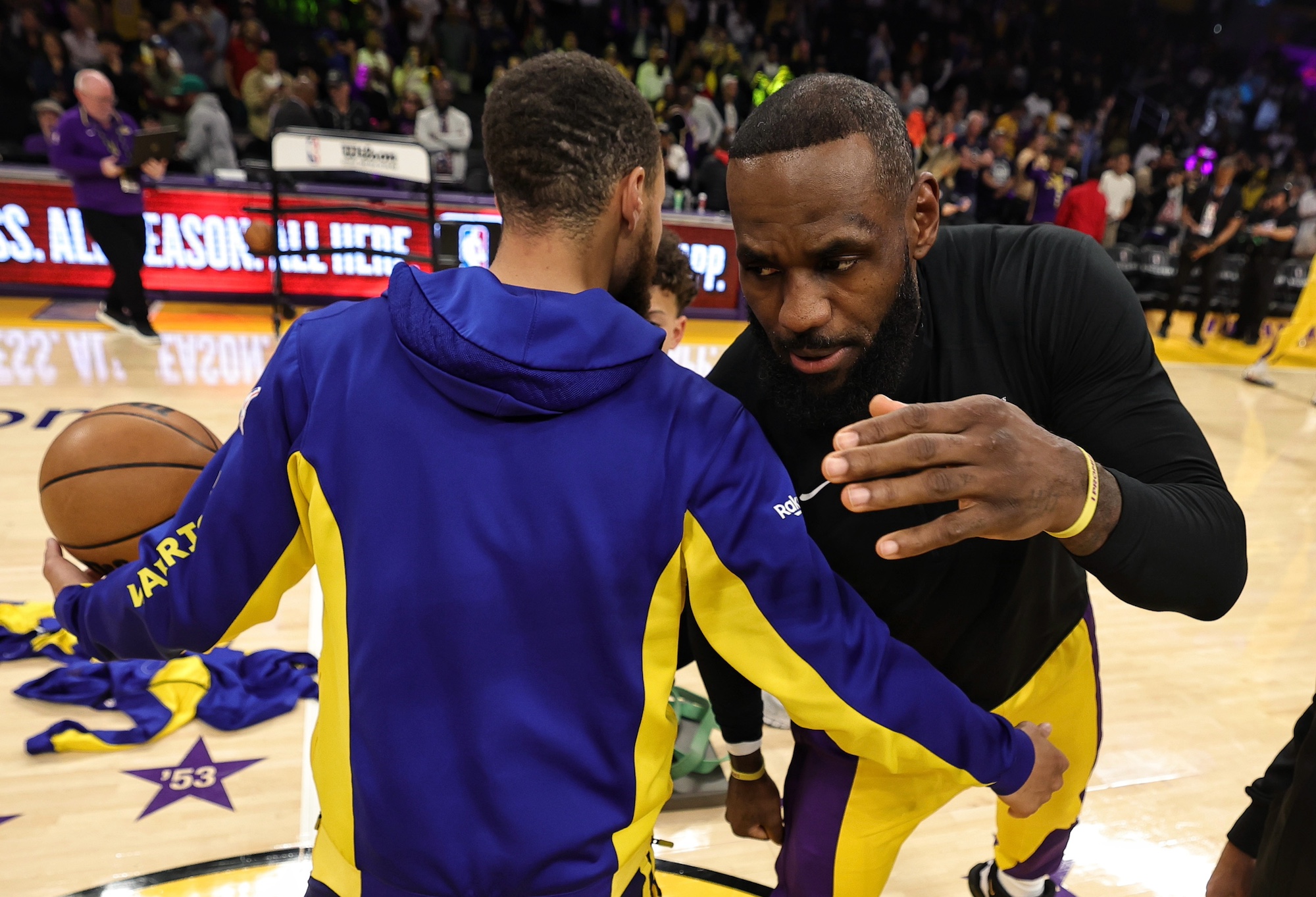LeBron James and Stephen Curry begin what could be the shortest postseason runs of their careers Tuesday evening, and if either the Lakers or Warriors lose on the road tonight, the loser (or losers) gets to be told how old they are.
That's how it works when you've got as many miles as James and Curry do. Not being able to do what you've routinely done—lead, cajole or drag your teams to deep playoff runs—naturally falls on you whether you had anything to do with it or not. The last-day car crashes that saw the play-in games settle in New Orleans (where the Lakers play) and Sacramento (where the Warriors are) became subtle hints that maybe this is finally the time when the two most persistent playoff performers of this generation finally get what's been coming to everyone else for the last decade and change.
While neither Curry nor James have played in the most postseason games in the last 10 years (that would be Klay Thompson and Draymond Green), they are the eldest active players in the top eight (hello, Al Horford) as well as the two who most define their respective teams. Thus, the snap decisions on who's too old to keep doing this will fall decisively upon them because we don't like our icons aging.
We always think the best players can go on forever because that's the mythology we enjoy. Tom Brady is still acting like he wants to return to football at age 47, though this could just be him preening for a reaction, and no, he is not above that sort of thing. To be honest, that may also be true at some point for James and Curry; they just haven't been chronologically tested that way.
James and Curry, though, are judged differently than most because their jobs are more rarefied. They are tasked with carrying their limited teams beyond their capacities—James more so than Curry—and their relatively pedestrian win-loss records become reflections on them rather than the rosters around them. Not because they are solely responsible for them, mind you, though James has historically taken a more active role in roster construction than Curry, but because sports fans delegate blame downward. Once a player has shown that he can be perceived as the prime reason for victory, it doesn't take much of a stretch to perceive him as the reason for underachievement.
And here's why the fingers of blame may stick a bit more this time. The NBA has re-weaponized the role of the veteran playoff team this year by changing the way it wants its games officiated to more resemble the good old days of … well, 2014. You can draw charges again. You can almost kind of handcheck again. Fouls are back. The pivotal All-Star Game fiasco caused the elves in the league office to change the rules of engagement after a five-month free-for-all, and the young'uns who led that development have had to adjust to the changing whims of management aesthetics for the first time.
This would suggest that veteran playoff performers like the Warriors and Team LeBron would have an inherent know-how advantage with new rules interpretations that are really just old rules interpretations. The game has come back to them in a way, though not soon enough to get them out of the play-in round.
So it is that Golden State finds itself against a younger yet profoundly weirder Sacramento team and the Lakers in Louisiana facing Zion Williamson, Brandon Ingram and Jonas Valanciunas, one of only six players to start every game this year. Road games are harder to win in the real season, and this counts as part of the real season no matter what the league says about it. When you're one-and-done, you're one-and-done, and it is not beyond conception that both James's and Curry's teams could very well be the dones rather than the ones.
And if that happens, guess what will be mentioned first. Yep. Birthdays, as in too many of them. Half-baked crystal gazing to determine when retirement becomes the prime option for both of them because they couldn't carry one more team into May or even June.






